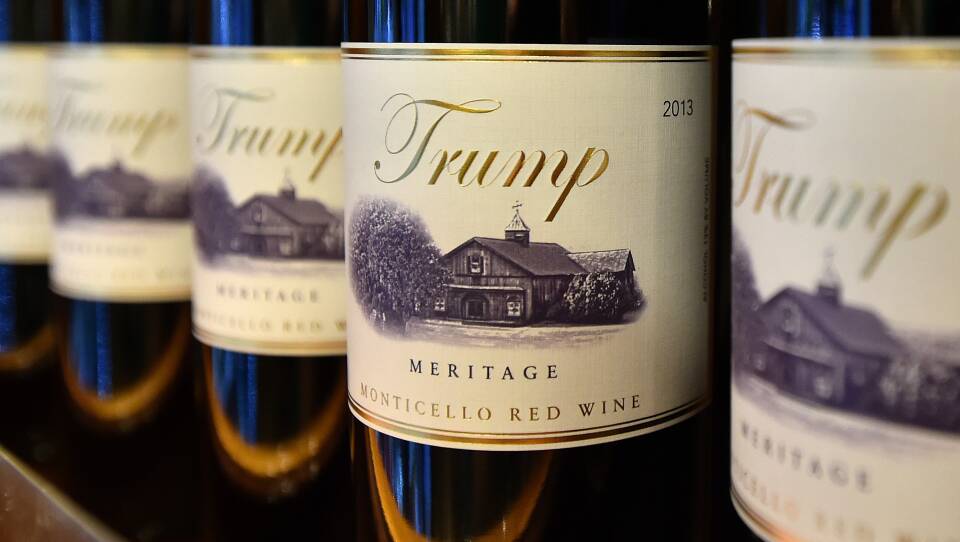President Trump has never been shy about promoting his businesses.
Even at a press conference after the racially tinged violence in Charlottesville, Va., he paused for a product placement:
"Charlottesville is a great place that's been very badly hurt over the last couple of days. I own, I own actually one of the largest wineries in the United States. It's in Charlottesville."
It's not one of the largest, although Trump's 2017 financial disclosure statement put its value between $11 million and $52 million. But its bottles were on the racks of a gift shop at Shenandoah National Park, about midway between Charlottesville and Washington, D.C.
Some visitors saw the wine there last summer. They told one of their colleagues at the Center for Biological Diversity in D.C. The colleague is Bill Snape, a lawyer at the center.
"They had been at Shenandoah National Park, and seen a lot of Trump wine," Snape told NPR. He drove down to see for himself, also to do some camping and birding.
"Y'know, I'm not going to drive out just to see Trump wine," he said.
The wine was indeed there, but he didn't buy any. Instead, he filed a Freedom Of Information Act request this week, seeking Interior Department records on wine sales at national parks.
This episode was first reported by E & E News, a news service that covers energy and environmental issues.
The National Park Service explained in a statement that, while it authorizes categories of products to sell, the contractors who run the gift shops get to choose the brands. Delaware North, the contractor at Shenandoah National Park, said Trump Wines was sold as a local brand before Delaware North dropped it in September.
Snape pointed out that Virginia has scores of other wineries that don't raise questions of influence.
"There are so many different wines you could pick from Virginia to sell at Shenandoah National Park," he said. "The fact that Trump wine is there raises a lot of questions."
The White House declined NPR's request for comment.
Former White House ethics counsel Richard Painter — now on the board of watchdog group Citizens for Responsibility and Ethics in Washington, which is involved in two corruption suits against Trump — said the gift shop contracts seem OK, but the larger context is troubling.
Copyright 2017 NPR. To see more, visit http://www.npr.org/.




